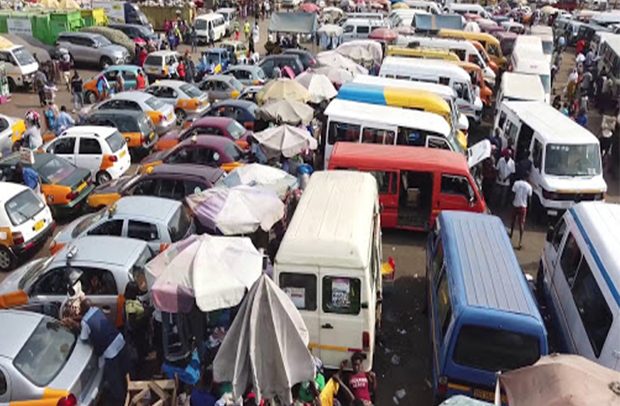Transport fares have been reduced by 10percent effective Wednesday, May 17, 2023, following the recent downward trend of petroleum prices.
Road Transport Operators announced reduction in a release jointly signed by Emmanuel Ohene Yeboah, General Secretary of Ghana Road Transport Coordination Council, and Godfred Abulbire, General Secretary of Ghana Private Road Transport Union (GPRTU).
The new fares will apply to shared taxis, intra-city buses, popularly called tro-tro, intercity (long distance) buses, and haulage vehicles.
The release stated that the reduction was in line with the Administrative Arrangement on Public Transport Fares, and was a response to the observed reductions in the prices of petroleum products over the period.
It urged all Commercial Transport Operators to comply with the new fares and post them at their loading terminals.
The transport fare reduction comes after several increases last year, dovetailing into this year.
On Saturday, February 26, 2022, there was a 15 percent increase in the cost of transport.
The transport unions wanted a 30 percent upward adjustment, but after a meeting with stakeholders on Monday, 21st February 2022, the operators agreed to a 15 percent increment.
Then, in May 2022, transportation fares went up again by 20 percent after the prices of petrol and diesel shot up to a national average of GH¢9.41 and GH¢11.12, respectively. Again in October 29, 2022, transport fared went up again by 19 percent.
However, Road Transport Operators reduced transport fares by 15.3 percent effective Monday, December 19, 2022.
The reduction in transport fares will come as a relief to many Ghanaians who have been struggling to keep up with the high cost of transportation. With the dominance of the private sector in the urban mass transportation service provision, fares charged have always been a source of controversy due to the objective of the service providers. This group of people considers this form of transport mode as the only affordable means of commuting, and it affects productivity since most workers use them to get to their workplaces.
In a country where transport fares impact directly on the prices of all goods and services, reducing fares should reflect in the reduced prices of goods and services. Drivers and commuters have been advised to ensure the smooth implementation of the reduction,
By Vincent Kubi


